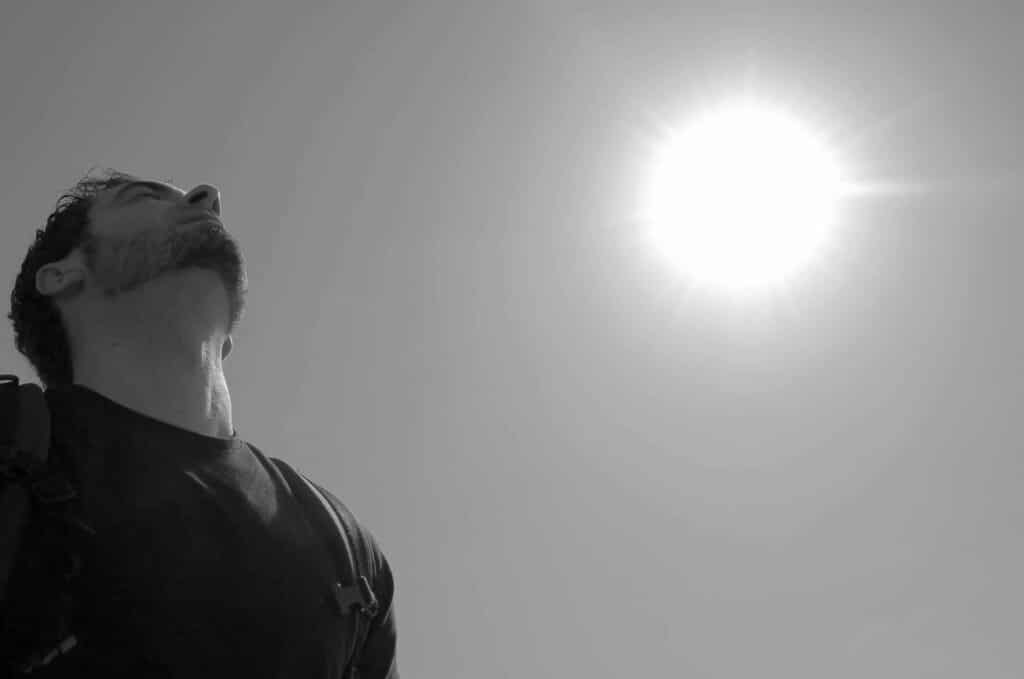
by Eoin Roe, Chiropractic
The basics of health are universal for everyone and while being simple in concept they have huge effects on health and wellbeing. As with all things that seem simple at the outset they rarely are.
Water
“Every function of the body is monitored and pegged to the flow of water” (Batmanghelidj, 1992)
As humans we have evolved a complex system of rationing water through the body. Whilst this system is very beneficial in helping us survive in extreme situations in a dehydrated state, it should not be the normal state of affairs and good hydration is essential to good health.
Water is an essential component of acid/alkaline balance in the body. Adequate consumption of water is required daily to maintain an optimum pH level and prevent acidosis. As a general rule, which I am sure you have heard before is to drink eight glasses of filtered water per day, but did you know that depending on your weight and other fluid intake this may need to be more.
Only water will hydrate the body and it is important to drink water and not other manufactured drinks. Whilst drinks like tea, coffee, alcohol, fruit juice and carbonated beverages all contain water, they also act as diuretics, chemical compounds that make you pee more and reduce tissue hydration. Therefore if you drink them you will actually need to drink more than the eight cups per day to counteract the diuretic effects.
If you want to read more about waters role in the body and how correct hydration will improve your health, I recommend Dr. Batmangheldji’s book ‘Your Body’s Many Cries for Water’, which also be found in .pdf format on the Internet.
Food
“Man is the only species clever enough to make his own food and the only one stupid enough to eat it”. (Harcombe, 2010)
There really is no nutritional advice beyond eating a well balanced diet. Trouble is most of us don’t know what that is and even if you do, it can be hard to achieve. In my experience when helping clients to change what they eat, the greatest benefits are gained from removing foods that are bad for us; namely foods high in sugar, salt and trans fats.
This information can immediately become complicated because real salt and some types of fat are actually essential to life, and the body can handle sugar in moderation. So when advice is given to remove salt, fat and sugar from the diet it matters what type of salt, fat and sugar should be removed. You need to avoid foods that are deep fried or pre-made with table salt, sugar alternatives and additives these include:
ALL junk food – heavily processed foods, frozen pizza, crisps, biscuits, cheap white breads, fat free foods etc. the list is endless but really it means anything that is manufactured to be tasty and cheap.
Additionally ALL drinks with zero sugar using sweeteners or those with excessive levels of sugar especially when made with HFCS (high fructose corn syrup)
Eat real food that you can identify as grown in the ground or comes from animals that eat food that grew in the ground.
The only other bit of simple advice I would give is – if you know a certain food does not agree with you don’t eat it.
Breathing
“How do you tell if something’s alive? You check for breathing.”(Markus Zusak)
We can all relate to the essential nature of breathing. Whatever about how long we would last without food and water it would be a lot shorter without breathing. The main function of breathing is to bring oxygen for the body to metabolise, it is also very important to rid the body of the by products of that metabolism creates, namely carbon dioxide. Breathing also plays several roles in physiological and psychological function and is therefore often the mainstay of meditative or mindfulness techniques.
Just as we need exercise to keep our bodies fit doing breathing exercises enhance its function. There are many different techniques out there – all yoga practice has a focus on breathing, a technique called Buteyko breathing has many benefits and there are those who specialize in teaching this technique to help with asthma, sleep apnea and other health conditions (McKeown, 2015).
Again the basics are – keep your mouth shut and breath in and out through your nose. If you can’t breath through your nose then you need to seek help from someone and I would suggest you look at Buteyko technique first.
Keeping active
“It is your actions that govern how you feel, not how you feel that governs your actions”
We are physical beings and bodies do not function well with a sedentary lifestyle. You will notice that I have not used the word exercise here and that is deliberate. All exercise is really just forced activity. There was no need to tell my grandfather that he needed to be doing more exercise, he didn’t have a car, and he would have chopped wood or collected coal and gardened for food. Our lives have changed dramatically since that time. Work has become longer, with more time sitting, often in front of a screen. Even physical work has become more specialised and aided by machines.
With all that in mind most of us need to be doing some form of regular exercise and the best sort is walking, this helps develop cardiovascular fitness and is unlikely to cause us injury, you should be aiming for one hour per day of good walking, adding in work around the house and garden should give most people a sound basis for health.
Sleep
“Sleep is the best meditation.” — Dalai Lama
If you could bottle sleep you would make a fortune. There are many great benefits from getting a good solid night’s sleep. Seven to nine hours of uninterrupted sleep every night has numerous health benefits, from boosting immune function, cognitive function and alleviating depression. It is certainly true that reduced quality sleep increases the risk for major depression, which in turn increases the risk for reduced sleep (Roberts & Duong, 2014).
There are complex physiological functions at play, which affect sleep, and mean that our health benefits from going to bed before 10pm and rising when the sun comes up. We are also able to help ourselves have a better chance of getting good quality sleep when we follow good sleep guidelines. Here are a few ideas:
Exercise daily; physical activity greatly helps to improve sleep quality
Don’t drink caffeinated products especially not before bed.
Try to get to bed at the same time each night
Switch off screens and other stimulating media an hour before heading to bed.
Don’t have phones in the bedroom.
All of the above are easy concepts to grasp but they will have huge benefits for your overall health, as dysfunction in any of these basic physiological functions are precursors to many of the diseases prevalent in western society.
If you have any questions about this article or would like some more specific advice please contact me at 087 958 2362 or email eoin@eoinroechiropractic.com.





